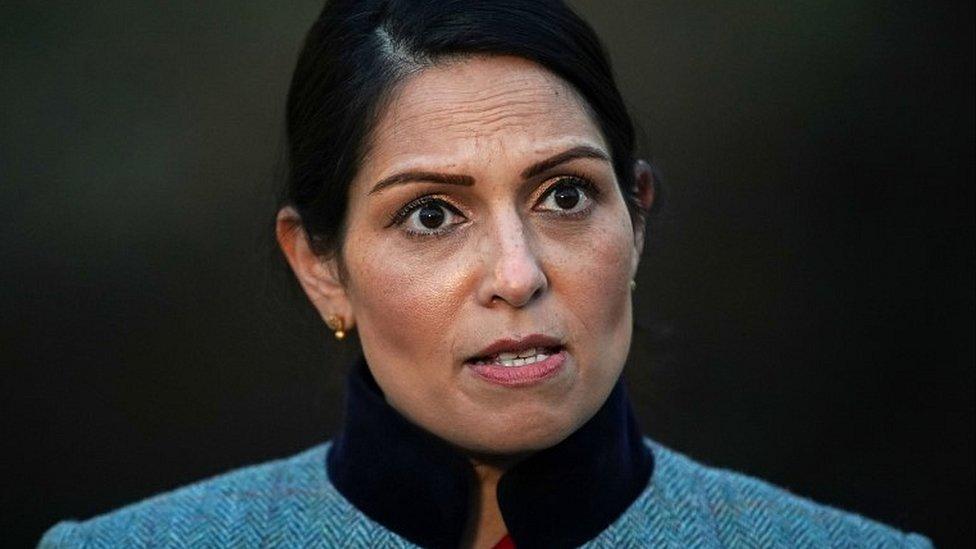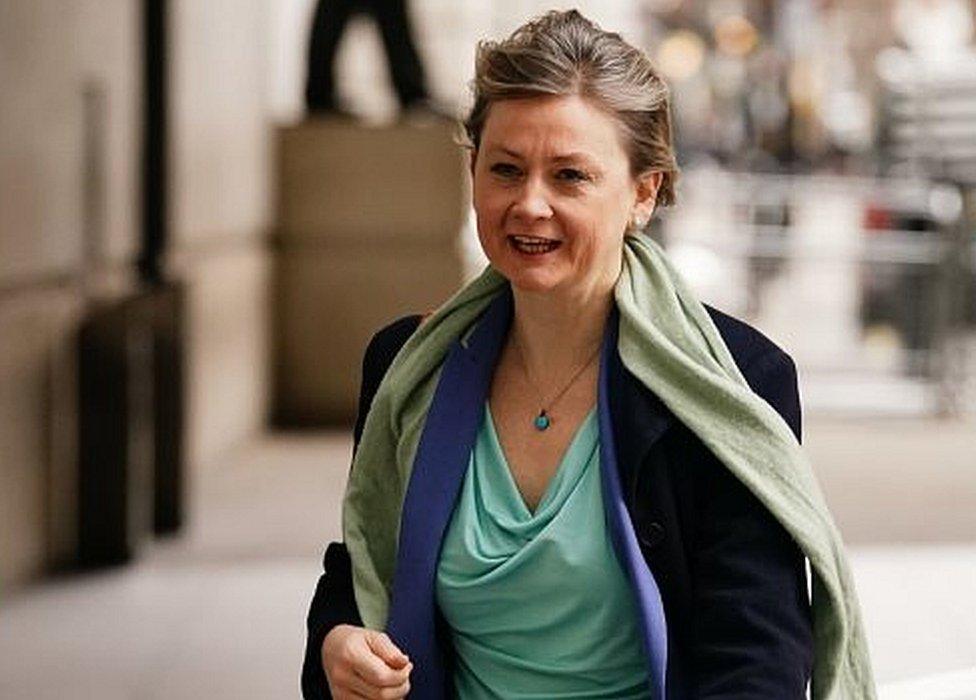Misogyny shouldn't become a hate crime - Priti Patel
- Published

The government has rejected demands to make misogyny a hate crime, arguing it could prove "more harmful than helpful" to female victims of violence.
The House of Lords has added the offence to the Police, Crime, Sentencing and Courts Bill, which goes back to the House of Commons next week.
Ministers will seek to overturn this and several other changes to the bill.
It also deals with the killing of emergency workers, domestic abuse prosecutions and policing protests.
Home Secretary Priti Patel has written to all MPs asking them to support the wide-ranging legislation, which must be backed in full by both Houses of Parliament before it can become law.
Currently, in England and Wales, race, religion, disability, sexual orientation and transgender identity are the only specific characteristics which can, in law, trigger a hate crime.
If one or more of these motives is proved, this can result in higher punishments.
Campaigners say sex and gender should be added to the characteristics list, arguing that misogyny is one of the "root causes" of violence against women.
In January, the Lords amended the policing bill to this effect, but the government has consistently rejected the idea.
In its latest advice, the Home Office cites findings by the Law Commission, which makes recommendations to ministers.
It said making misogyny a specific hate crime could be "more harmful than helpful" to women and girls who are victims of violence, as prosecutors would need to prove a hate crime had occurred as part of another offence, such as rape.
This, it argued, could make it harder to convict sex offenders and domestic abusers.

Labour's Yvette Cooper said Priti Patel was not doing enough to cut crime
The commission also said that if domestic abuse and sexual offences were excluded from being designated as hate crimes, there would be only "tokenistic" change because the most serious offences against girls and women would not be covered.
But supporters of making misogyny a hate crime say it is needed to tackle prejudice and reduce crime.
The Fawcett Society gender-equality charity argues it would challenge the "normalisation of toxic attitudes on our streets and in public life".
And the domestic violence charity Refuge says there has to be a "radical culture change that is needed in order to better protect women and girls".
The Police, Crime, Sentencing and Courts Bill has faced fierce opposition in the Lords, with peers also removing controversial changes to the way protests are policed.
Other measures set out by the government in the legislation include:
Mandatory life sentences for people convicted of the unlawful manslaughter of emergency workers
Extending the time limit for prosecutions in domestic abuse cases
Increasing the maximum penalties for child cruelty offences
Introducing an offence of "breastfeeder voyeurism"
Shadow home secretary Yvette Cooper said: "Crime is rising, prosecutions are falling and there are still major steps that Labour is calling for to keep communities safe that Priti Patel is refusing to take."
But Ms Patel said: "This bill is vitally important as we overhaul the criminal justice system and make our streets safer. It must be passed soon so that we can continue to cut crime, reduce violence and protect women and girls."